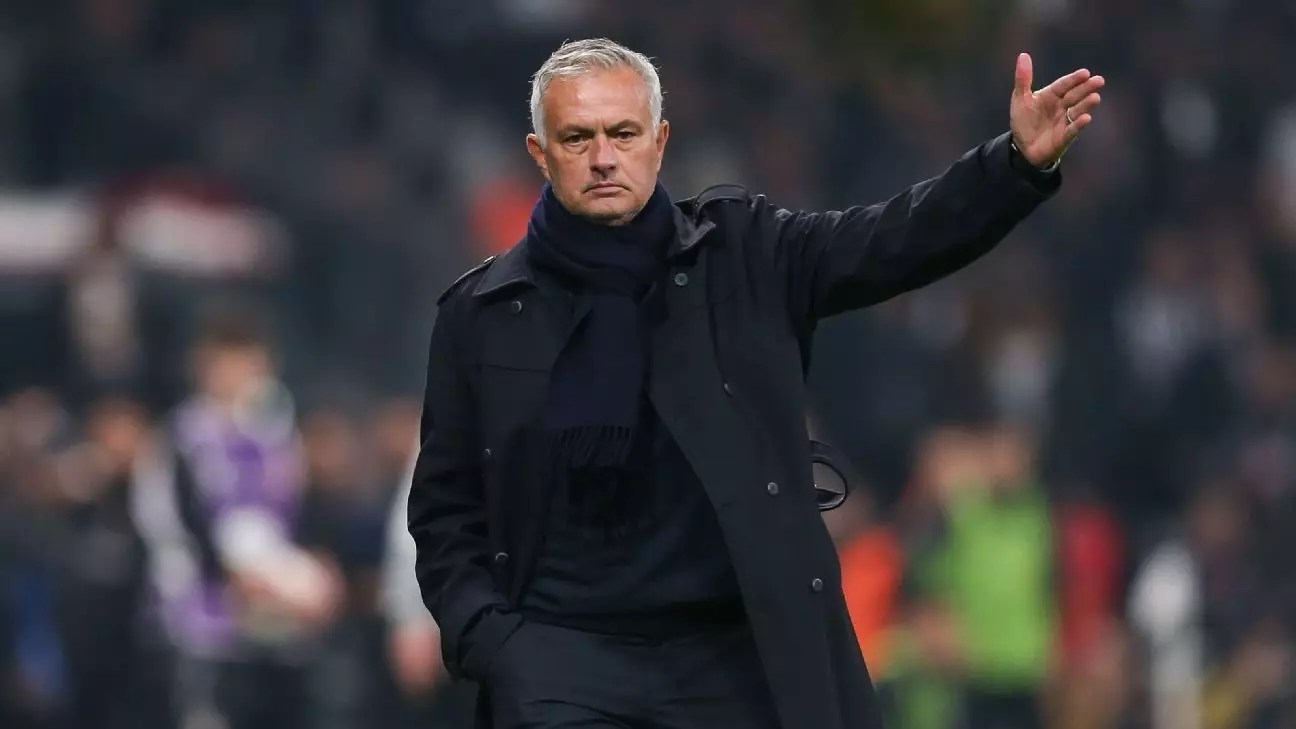The football world is no stranger to heated rivalries and interpersonal conflicts among its prominent figures. This is particularly true in the case of José Mourinho and Pep Guardiola, who have engaged in a long-standing rivalry dating back to their days in La Liga. The recent exchange between them, sparked by Guardiola’s exaggerated gesture signifying his title wins, reignited discussions surrounding their contentious relationship. Behind the drama lies an intricate web of professional pride, ambition, and the ethics of financial practices in football.
Mourinho’s recent comments, where he emphasized his concern for “justice in football,” underscore a broader debate within the sport regarding Financial Fair Play (FFP) regulations. His frustration is aimed not solely at Manchester City but at a larger systemic issue that governs the footballing landscape. While Guardiola’s success at Manchester City has been undeniably impressive, Mourinho points out the double standards in FFP enforcement, highlighting how smaller clubs face severe consequences while wealthier teams find ways around these rules.
Guardiola, on the other hand, appears to dismiss Mourinho’s implications, framing them as grievances from someone who wishes to see him and his club fail. This response indicates a defensive posture, a common reaction when one is faced with criticism that threatens their achievements. The emotional undercurrents of their rivalry add layers to their public interactions, transforming them from mere coaches into representatives of competing philosophies that guide their respective approaches to football management.
One of the most striking aspects of their public exchanges is the dichotomy between what is expressed verbally and the underlying sentiments that may not reach the surface. Mourinho’s insistence that he desires “justice” rather than punishment—such as relegation for Manchester City—suggests that his criticisms are rooted in a passionate commitment to fairness rather than petty jealousy. This resonance highlights his complex nature, revealing a man who identifies deeply with the broader struggles faced by clubs operating within restrictive budgets.
Guardiola’s laughter in the face of Mourinho’s barbs could be interpreted as an epitome of confidence, yet it also hints at the pressure he feels. His reluctance to confront Mourinho specifically during press events suggests a tactical approach, opting to avoid inflaming a rivalry that has been both personal and professional. This unspoken tension raises questions about how each man navigates public perception, and whether there is deeper mutual respect that simply cannot be expressed through sound bites.
The Future Landscape of Football Management
As Mourinho and Guardiola continue their respective careers, the landscape of modern football management may face significant changes. Guardiola’s recent declaration that he is unlikely to manage another club after City adds an element of finality to his current chapter. It raises the question of what legacy he wishes to leave behind—one defined by unparalleled success or one that might be marred by accusations of financial misappropriation.
Furthermore, Mourinho’s acknowledgment of the burdens faced by clubs under FFP regulations serves as a challenge to the status quo. His statement can be seen as a rallying cry for fairness, emphasizing that titles should not only reflect victories on the field but must also come with a sense of ethical governance that treats all clubs equitably.
The exchanges between José Mourinho and Pep Guardiola mirror the broader struggles within the football world today. Their rivalry encapsulates not just personal tension, but also highlights a clash of ideals shaping the sport. As financial pressures continue to mount and the balance of power among clubs evolves, the need for dialogues surrounding fairness and integrity in football becomes increasingly crucial. Their rivalry may be intense, but within that friction lies an opportunity for substantive discussions that could redefine what it means to compete in the modern game. Both managers, through their public personas and philosophical diverges, are contributing to discussions that will shape football for years to come.


Leave a Reply